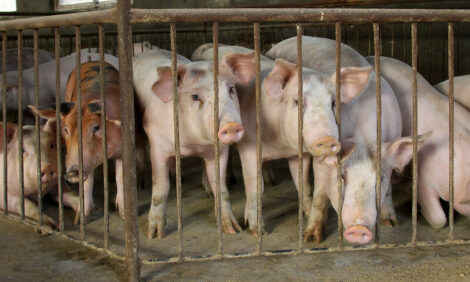



Boehringer Ingelheim: Successful Participation at IPVS 2016 in Dublin
IRELAND - The 24th International Pig Veterinary Society (IPVS) Congress was held in Dublin, Ireland, from June 7-10, 2016, simultaneously with the 8th European Symposium of Porcine Health Management. During IPVS 2016, Boehringer Ingelheim contributed with many posters and oral presentations and also with a satellite symposium in which several pig experts from different parts of the world shared and explained their vision of pig production, writes Nuria Martínez Herráez, Editor of ThePigSite's Spanish sister site ElSitioPorcino.Over the course of four days, the congress provided a forum for global swine industry professionals to discuss prevention and treatments of emerging diseases, advances in reproductive technology and arising challenges related to respiratory health in pigs.
One of the most successful activities this year, conducted by Boehringer Ingelheim, was the "Meet the expert" sessions held at their stand during the congress coffee breaks.
This new format, introduced for the first time at IPVS 2016, aimed to facilitate networking and allowed the attendees to participate in a close and interactive face-to-face debate with international swine health experts, such as John Harding (Canada), Scott Dee (USA), Roberto Guedes (Brazil), Philipp Leneveau (France) or Alberto Parra (Spain).
In addition, Boehringer Ingelheim held a satellite symposium on 8 June under the subject "Why vaccines feed the world?", with the participation of Prof. John Harding and Dr. Dennis DiPietri.
César Carnicier, Head of Global Marketing Swine, introduced the speakers for the symposium while he posted the question about industry readiness for the changes affecting the world.
He highlighted the fact that, according to the FAO outlook for the coming years, from 2014 to 2050, pork production would need to increase from 108 million tons to 154 million tons, due to the expected product demand. However, the challenge would lie on producing a higher required amount of meat despite of having few resources available globally to do so.
Following Dr Carnicier's statement on the need to find a way to produce more with less resources, Dr. Dennis DiPietri added that in order to meet this higher demand of pork, thanks to an increase of incomes in certain areas of the world, innovation will be required. This innovation will be achieved only by moving from the current production system to precision production system.
According to Dr. DiPietri, this transition will allow the industry to achieve precise production that allows increased output with the same use of resources, with less waste, a higher quality of production, an increased sustainability and higher economic resilience. He pointed out that resilience will make it possible to achieve long-term profitability.
At the moment, the problem in the pig industry is its high variance. Dr DiPietri suggested that applying technologies to move to precision production - similar to the move to precision agriculture, it would help pig industry to improve their outcomes.
To sum up, he pointed out that diseases are the greatest cause of deviation in pig production and, therefore, prevention would be the key for founding the base for precision production.
After Dr. DiPietri's presentation, Prof. John Harding gave an overview of the possibilities for genomics to end the vaccines' era in animal health.
According to Prof. Harding, the traditional approach to managing health in the pig industry which includes antimicrobials, vaccines, herd elimination, biosecurity and regional control, face different threats (antimicrobial resistance, cost/time for vaccine developments, etc.) and might not be enough anymore to control diseases.
In human health, genomics are the future to control health: a personalised medicine that allows us to know inherited conditions, genetic risk factors, traits and drug responses. Prof. Harding laid out the possibility of genomics becoming a tool for swine health management, as an opportunity for customised health management of pigs.
However, Prof. Harding also pointed out that genomics would not be sufficient to control all diseases in swine as there are some constraints to making it applicable in swine health, such us the cost of its application, the existence of polygenic traits (editing them could solve a problem but affect pigs in a another way) or the consumer and regulatory acceptance to gene editing.
After Prof. Harding, Yan Hua Guo, Marketing-Head at Boehringer Ingelheim China, presented a real case of the application of Boehringer Ingelheim's 5-step process to control PRRS in Asia that allows a farm to improve the health status and increase the number of born alive and piglets per sow.
Finally, to wrap up the symposium, Dr. Oliver Duran, technical director at Boehringer Ingelheim, talked about the importance of the right measuring in pig health by not focusing only on mortality and ADG but also in other parameters such as consistency or the impact of variability in herds.
He concluded by emphasising the direct and indirect benefits of health prevention for overall swine health. Among direct benefits of vaccination, producers and swine vets will find less dependence on antibiotics and improved pig well-being due better health and less stress and, among indirect benefits, they will find reduced pain and swelling and improved food safety.
Boehringer Ingelheim also had several posters and oral presentations at IPVS 2016 - For detailed information on the symposium and the posters visit www.preventionworks.info









